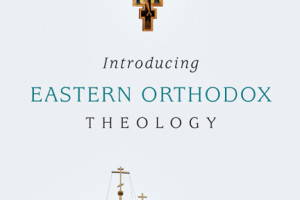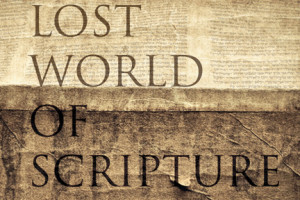I’m currently participating in an extracurricular reading group with students here at Bethel Seminary. We just finished reading through the first five books of St Augustine’s Confessions. It’s been a blast to read and discuss, and I thought I’d share one of my reflections so far.
As I was reading the beginning of Book V, I was intrigued by St Augustine’s theological engagement with the Manichean sect that he was a part of for some time before becoming a Christian. In particular, he was discussing the correctness of their natural observations about the world and whether that ultimately mattered. As a bit of background, this group was intriguing for many reasons. They disliked the OT for the morality of its protagonists, animal sacrifice, etc. They held to the New Testament as Scripture, but believed that the text was corrupted by interpolations of “Jewish laws,” and so on. They believed that their leader was uniquely indwelled by the Holy Spirit, and they had this interesting belief that if their leader ate certain fruits and plants, and was then induced to vomit, he would be retching up divine particles! All that to say, they were quite fascinating. St Augustine seems to have been inclined towards their movement because of their eloquence (he spoke of how much, as a young man, he valued rhetoric and oratory) and because of their very interesting system of being able to describe the natural world in predictive ways, particularly in relation to astrology. Their teachings on nature were compelling and accurate, esp. their accounts of when eclipses would occur and things like that. And it’s this last little bit pertaining to their ideas of nature that I’d like to briefly comment on.
In Book V, St Augustine says that they were correct about a number of things within the natural world, but this didn’t ultimately lead them to a proper knowledge of God. “About the creation they say many things that are true; but the truth, the artificer of creation, they do not seek in a devout spirit and so they fail to find him” (Book V, iii, 6; p.75 in Chadwick).
From here, St Augustine considers both what happens if we say correct things about nature or incorrect things about it, and whether our views on nature ultimately need to take the place of a central core belief. He speaks of an example of what he does when he listens to a Christian saying incorrect things about nature. He says, “with patience I contemplate the man expressing his opinion” (Book V, v, 9; p.76 in Chadwick). I think this is a great attitude and it’s one that is clearly applicable today given the debates and in-house fighting regarding our views on creation, the age of the universe, whether the days in Genesis 1 are literal 24-hour days, the relationship between science and faith, and whether or not God could have used evolution.
There are a number of Science and Faith groups out there, and most of them are operating from a position of creation science. One group in particular, Answers in Genesis, is adamant that there’s really only one Christian option (Young Earth Creationism, hereafter YEC) and that all other positions undermine the gospel. I don’t have a Problem with YEC as a Christian option, but I do have a problem with claiming that it’s the only Christian option and then tying this perspective so tightly to “the gospel” that it makes YEC a core theological tenet of Christianity rather than something secondary or tertiary (or perhaps peripheral).
To be fair, St Augustine puts limits on the “wrong” things that a Christian can confirm without it being more problematic. The determining factor in the end is a theological one. “I do not see it is any obstacle to him if perhaps he is ignorant of the position and nature of a physical creature, provided that he does not believe something unworthy of you, Lord, the Creator of all things (1 Macc. 1:24)” (Book V, v, 9; pp.76–77 in Chadwick). So theology is the ultimate arbiter. We can entertain various approaches to the issue of science as long as it does not lead to unworthy thoughts of God. That’s a great litmus test.
And yet here’s where St Augustine draws the line. Note what he says, “But it becomes an obstacle if he thinks his view of nature belongs to the very form of orthodox doctrine, and dares obstinately to affirm something he does not understand” (Book V, v, 9; p. 77 in Chadwick). It is precisely the notion of making something secondary or tertiary into a central tenet that St Augustine is opposed to. I wholeheartedly agree with this. But, as St Augustine continues, the improper views don’t need to be expunged and eradicated. “But such an infirmity in the cradle of faith is sustained by mother charity, until the new man ‘grows up into a mature man is no longer carried about by any wind of doctrine’ (Eph. 4.13)” (Book V, v, 9; p.77 in Chadwick). If only we all allowed mother charity to nurture us in the cradle of faith, and if only we did not make unessential matters into matters of central importance. Following St Augustine’s lead here, I think we should major on the majors and not put obstacles in the way of the faith.





Leave a Reply
Your email is safe with us.